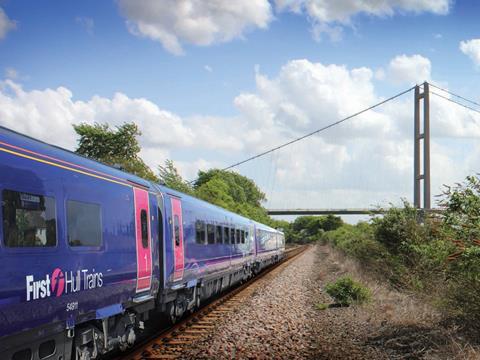
UK: Increasing on-rail competition between passenger train operators could bring lower fares, ridership growth, improved service quality, innovation, greater efficiency and more effective use of network capacity, the Competition & Markets Authority says in a report published on March 8.
CMA began its review of competition in the rail market in January 2015, looking at existing open access operations on the East Coast Main Line, competition elsewhere in Europe, the UK rail freight sector, air transport and airports. It has concluded that competition ‘for the market’ through franchising ‘has delivered positive results’, but says benefits could arise from more on-rail competition in the market.
CMA believes that increasing the number of open access services or splitting franchises would offer the most immediate benefits. In the longer term, CMA says it would be worth considering replacing franchises with multiple licensed operators who would bid for bundles of train paths.
CMA proposes that open access operators should cover more of the infrastructure costs through their track access charges, and pay a public service obligation levy to support desirable but unprofitable services such as those in rural areas. This would help cover any fall in the franchise premiums paid to government as a result of increased competition.
CMA says the potential for competition exists predominantly on the East Coast, West Coast and Great Western main lines. Its proposals would not affect current franchises and imminent awards, but ‘action is needed’ to begin the reforms which would be required. It suggests that the next Inter-City East Coast franchise which is scheduled to start in 2023 would be the best place to start, given the current franchising timetable.
‘We’ve found that there is strong evidence, both here and abroad, of the benefits that the introduction of competition on mainline inter-city routes can bring’, said CMA Chief Executive Alex Chisholm. ‘Where competing operators have been given the opportunity, the need to attract passengers who have a choice can mean lower fares, new routes and destinations, more innovations and flexible ticketing.’
While ‘there are legitimate concerns about the impact that greater competition might have on the income received by government from franchise operators’, the way this has been addressed so far ‘hinders new entrants’, said Chisholm. ‘We think a better way would be to have a level playing field, where competing operators are able to make more of a contribution to network costs and to funding unprofitable services. In return they would get more freedom to compete for business against the franchise operator.’
Responding to the report, Paul Plummer, Chief Executive of the Rail Delivery Group which represents train operators and Network Rail, said ‘it is important that everyone is clear about what the nation wants from the railway and how we can best achieve this.’ He said ‘we must take a joined-up and consistent approach to competition, freight, franchising, regulation, capacity, the shape of Network Rail and how we fund much-needed investment. Considering these in isolation is unlikely to deliver the best results for customers, freight users or taxpayers.’

















